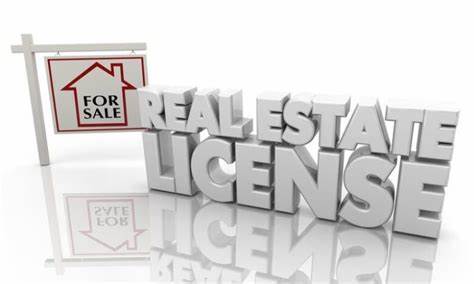
13 May Should an Investor Obtain Their Real Estate License?
There are investors who want to hold a real estate license, and there are real estate licensees who want to be investors. There are investors who don’t want to hold a real estate license, and there are licensees who don’t want to own real estate investments.
The majority of real estate investors are not licensed. However, some are.
First, let’s define with we mean by licensed. A state issues a real estate license if someone meets certain educational criteria and then passes both the national and state licensing exam. A license could then be issued when a real estate brokerage agrees to hire and supervise the licensee. A licensee is typically called a real estate agent or real estate broker. While certain states use differing terms, a real estate broker is generally an experienced agent who passed a broker’s exam and has completed higher level real estate courses.
You’ve heard the term Realtor. A Realtor is a member of the National Association of Realtors (NAR). The vast majority of real estate licensees are Realtors. However, there are some licensees who opt not to be part of NAR and the local Association of Realtors. So, all Realtors are licensees but not all licensees are Realtors. A Realtor pledges to abide by a common Code of Ethics, and so they are often held to a higher standard. Realtors have access to multiple tools that increase their capacity to serve clients at a higher level.
A real estate licensee/Realtor has to disclose their licensed status up front when buying or selling their own property. They may have an advantage in a transaction due to their knowledge and skill. If something goes wrong in a transaction, a licensee could face increased scrutiny since they should have known better. Many investors don’t want to be licensed so they aren’t required to reveal their level of knowledge and skill in a negotiation. Some investors don’t want to be held to the higher standards that a licensee/Realtor must abide by.
Benefits of an investor being licensed:
- Access to the Multiple Listing Service (MLS). Investors could see properties the moment they hit the market. Sometimes a three-hour head start is what you need to land the deal. Landlords looking to lease their units could list them on the MLS.
- Savings on commission. If their brokerage allows it, an investor could list their own property for sale to reach a wider audience of potential buyers. A licensed investor buying a property would not have to pay a buyer agent commission.
- Additional earnings on their own deals. Licensed investors can receive commission when they purchase a property. That commission would have otherwise gone to their buyer agent or the listing agent in some situations.
- Additional earnings on other deals. A licensed investor could serve as an agent for other investors or even friends or family. If you’re skilled and can generate lots of buyer or seller leads, realty commission is potentially a low-risk, high-reward type of compensation.
- Access to other investors, buyers, and sellers through the agents at the brokerage. If you are a member of a brokerage, particularly a large or successful brokerage, you can network with other agents. Some may be open to buying a property you’re selling. Some may be investors looking to sell their properties off-market. Some may have clients who are cash buyers. Others may have pocket listings, which are properties for sale not on the open market. After all, some landlords looking to sell may not want their tenants to know that the building is for sale.
- Training. Each brokerage provides real estate and sales training. Some brokerages are light years ahead of others. You can learn about entrepreneurship, investing, sales, marketing, bookkeeping, and how to hire and manage people. Most of the training is free.
- Additional income streams. While the majority of brokerages do not, some companies share profits with their agents. Some brokerages allow agents to buy shares in the company. Some brokerages allow agents to buy shares of in-house affiliates, like a title company or insurance company. Some brokerages create investment syndicates and let agents buy shares in the project. I have earned six figures in pure passive income from Keller Williams Realty. I receive five figures a year in passive income from KW.
- Wholesalers may need a license in an increasing number of areas. Because some unscrupulous wholesalers have created a bad reputation, an increasing number of areas are requiring wholesalers to be licensed. In 2019, Illinois enacted a law that requires a wholesaler to have a license if they engage in more than one wholesale deal per year. The City of Philadelphia recently required wholesalers to have a license.
Reasons why an investor is better off not being licensed:
- No disclosure requirement. You might have an advantage in negotiations if the other party does not know about your skill level. You are not held to the standards of the state licensing laws, nor the Realtor Code of Ethics.
- Cost savings. It generally costs around $1,500 to $3,000 to become a Realtor. It generally costs about $1,500 to $2,000 a year to be a Realtor.
- The power of focus. If you want to be a highly successful investor, your focus needs to be on acquiring and managing lucrative deals. If you’re also involved in real estate sales as a Realtor, you might lose focus.
- Having a great investment Realtor on your team. If you’re not licensed, you will need at least one Realtor as part of your inner circle. Instead of trying to be the Realtor for your team, you can have one working for you as your advocate. That one person could open a lot of opportunities for you in addition to negotiating like a bulldog on your behalf.
- No restrictions on your real estate activities by a brokerage. Some real estate brokerages have restrictions on the investment activities of their agents. Some brokerages require that any property an investor buys, sells, or leases must be listed through the brokerage. Some brokerages will not allow a licensee to represent themselves on the purchase of a property. Some brokerages won’t allow an agent to list their own property for sale. Some brokerages will deduct their cut from the commission of an investor buying or selling their own property. Many investors don’t want to be constrained at all.
I started out as a full-time investor who never planned to be licensed. To build my knowledge, I took the real estate classes needed for a license but didn’t take the licensing exam until three years later. I finally became an agent to keep some commission for myself and to obtain access to the MLS. I never expected to be a real estate broker, yet it has dramatically increased my knowledge and income. Being a broker has made me a better investor. Being an investor has made me a better broker.
If you are thinking of obtaining your real estate license, drop me a line. I want to see you succeed, and I’d love to give you some insights to help you increase your profit!
Tai DeSa is a graduate of The Wharton School of the University of Pennsylvania. He became a full-time real estate investor in 2004 after serving in the U.S. Navy. Tai made colossal mistakes in investing (and learned some things along the way). Tai has coached hundreds of entrepreneurs, real estate investors, and real estate agents on how to increase their income and net worth. He has helped hundreds of homeowners avoid foreclosure through successful short sales. Check out Tai’s books on Amazon.com. Tai may be available for coaching and speaking engagements on a variety of real estate topics. Send an email to tai@investandtransform.com.






No Comments